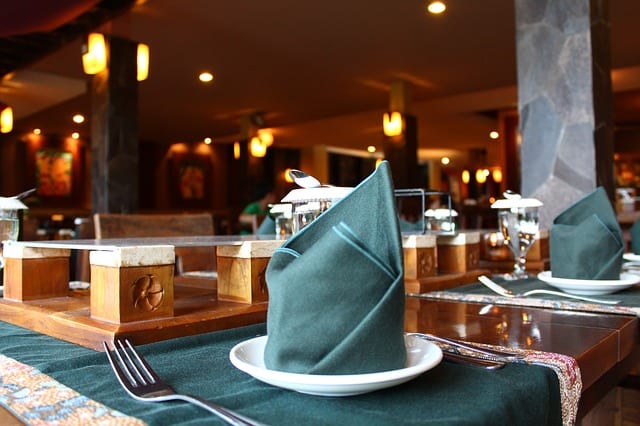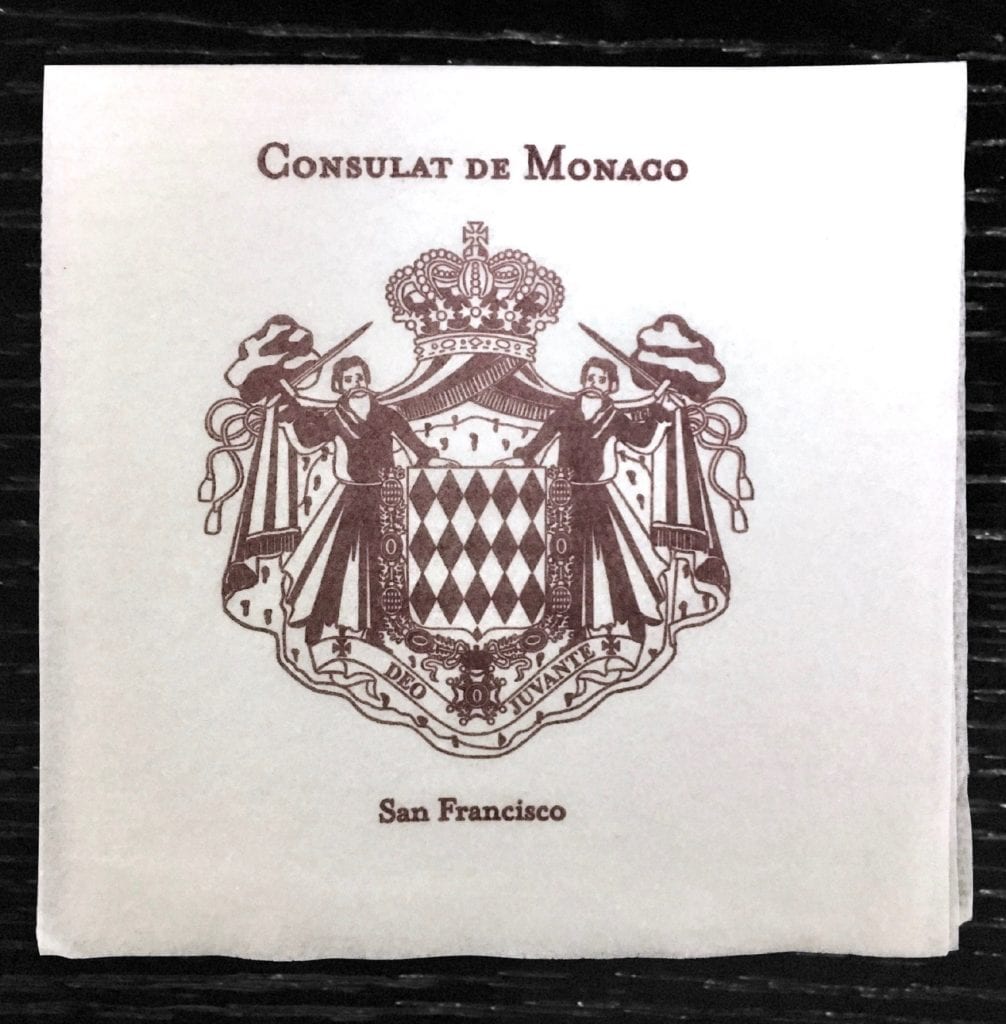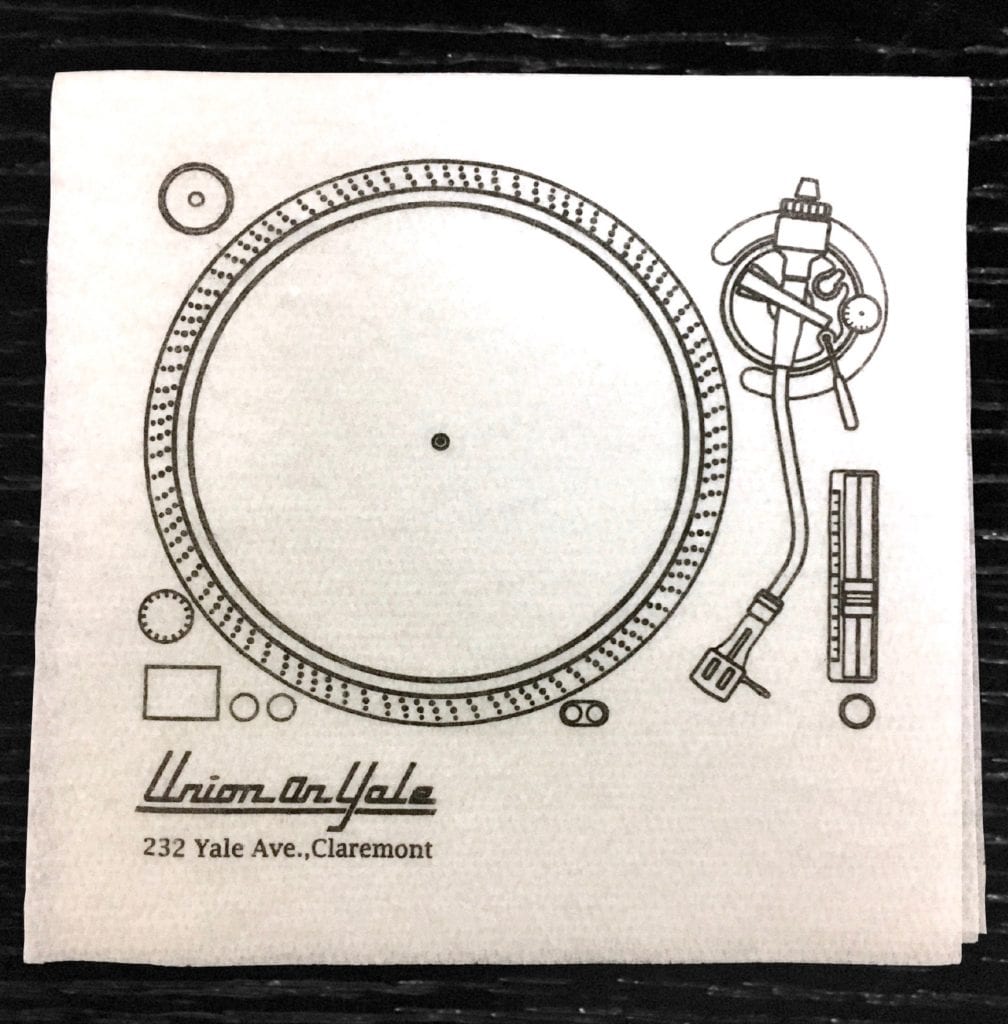It’s one of those moments in life that make you stop… You’ve been enjoying your meal, chatting with friends and family, and you go to wipe your mouth and the cloth napkins smell… off.
Kinda ruins the meal, doesn’t it?
Cloth napkins are a ubiquitous feature in the restaurant industry. They feign elegance, sophistication… But how clean are they? How much of this fuss is illusion?
Cloth Napkins
Cotton or Polyester?

Reusable restaurant linens are typically cotton-polyester blends. While cotton is favored for its soft texture and high absorbency, polyester blends are the standard in the foodservice industry. Cotton cannot hold up through many rounds of commercial washing; polyester is durable and holds color well.
Similarly, while cotton wrinkles easily, polyester napkins require less ironing (and therefore less work) to lay flat.
Polyester napkins are available in two types: spun or filament polyester. Spun polyester consists of short fibers woven together into a net. Filament polyester consists of single strands, wound back and forth, into a continuous sheet.
Cloth Napkin Limitations

Cotton napkins, although soft and absorbent, are more expensive and less durable. Polyester napkins are durable and more affordable, but present a different set of problems.
Filament polyester napkins, the most affordable options, are slippery. They fall off your patrons’ laps. And while they “repel” stains, they lack absorbency. Water and other liquids slip right off… onto the table, the floor, or your customer. If they do absorb food waste, they often hold onto it, remaining greasy and oily and often smelling “off,” even with multiple washes.
Spun polyester napkins fair better. They absorb better and have a heavier weight. But, if improperly washed, they will also “hold” onto food residue and lose absorbency overtime.
In both situations, cloth napkins can harbor mold and infectious diseases.
How do Restaurants Wash Their Linens?
The Laundry Process
While some restauranteurs handle their linen-washing in house, most hire a laundering service to clean their tablecloths, towels, and linen napkins. The laundering service gathers up the linens from multiple restaurants, transports the laundry to the laundering facility, and washes each linen type using a separate protocol. Protocols are specific, dictating detergent type and amount, water temperature, and length of cycle.
Potential Problems
The laundering process presents multiple opportunities for contamination. Improperly separated linens, miscalculated or out-of date detergent ratios, or inconsistent cycle lengths and temperatures, can introduce pathogens into the cleaning process.
Additionally, improper handling procedures can result in spontaneous fires. This is especially likely when restauranteurs attempt to wash soiled linens in inferior machines or with weak detergents that do not properly remove food waste from restaurant linens. Commercial laundering facilities decrease, but do not eliminate this risk.
The Need for More Hygienic Options
The CDC estimates that 1 in 6 Americans will get food poisoning on any given year. Of these, 128000 will be hospitalized and 3000 will die.
Contaminated restaurant cloths have been linked to high levels of enterobacteriaceae, E coli, Staphylococcus aureus, and listeria. Pregnant women, young children, the elderly, and the immunocompromised are most at risk.
Alternative Options for Cloth Napkins


Disposable paper napkins provide a sanitary alternative to cloth restaurant linens. Paper napkins are used and discarded and therefore cannot carry diseases, smells, and oily textures between consumers. Paper napkins are also compostable.
For restauranteurs looking to emulate the feel of traditional cloth napkins and hand towels, paper linens provide a disposable alternative. Paper linen napkins are crafted to emulate the look and feel of cloth napery. They are crafted from thicker pulp, resulting in a stronger, more absorbent product that better emulates the feel of traditional cloth napkins.
In Summary
Cloth napkins, if improperly handled, present a sanitation risk. Paper napkins eliminate that risk entirely. It is important as a restauranteur to consider all possible options for your guests’s sanitation needs, whether that involves cloth napery and a reputable laundering service, or disposable paper products.
Leave a Reply